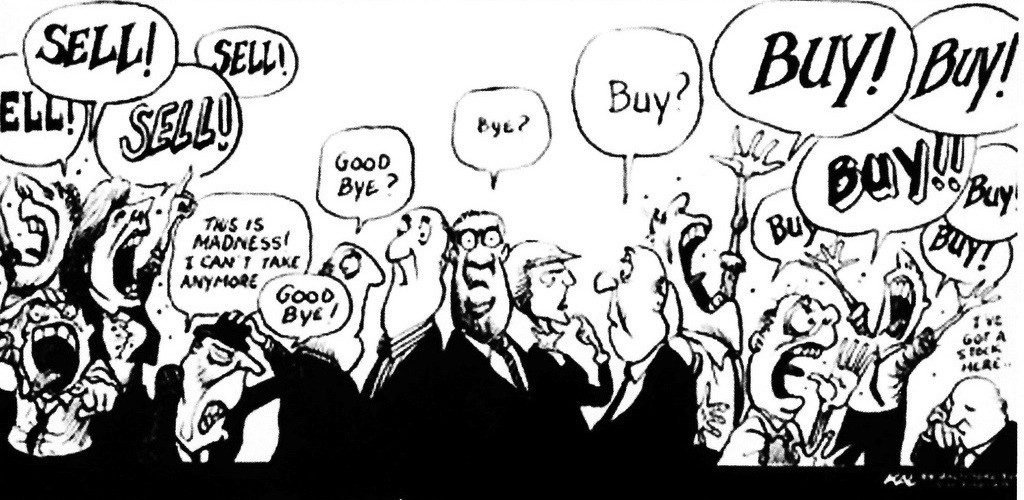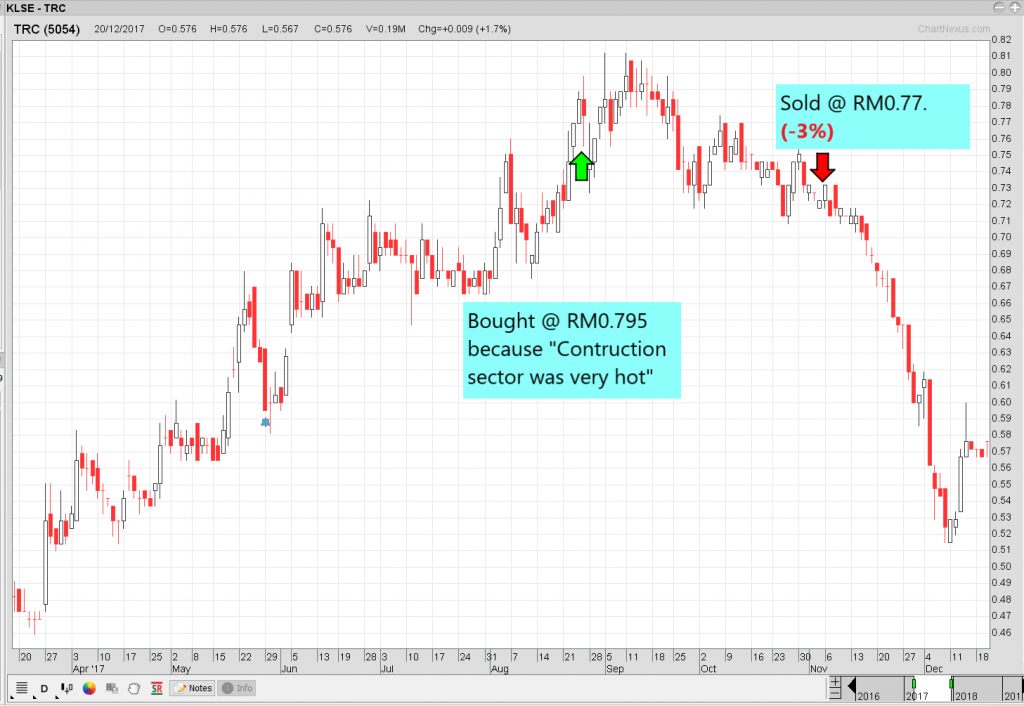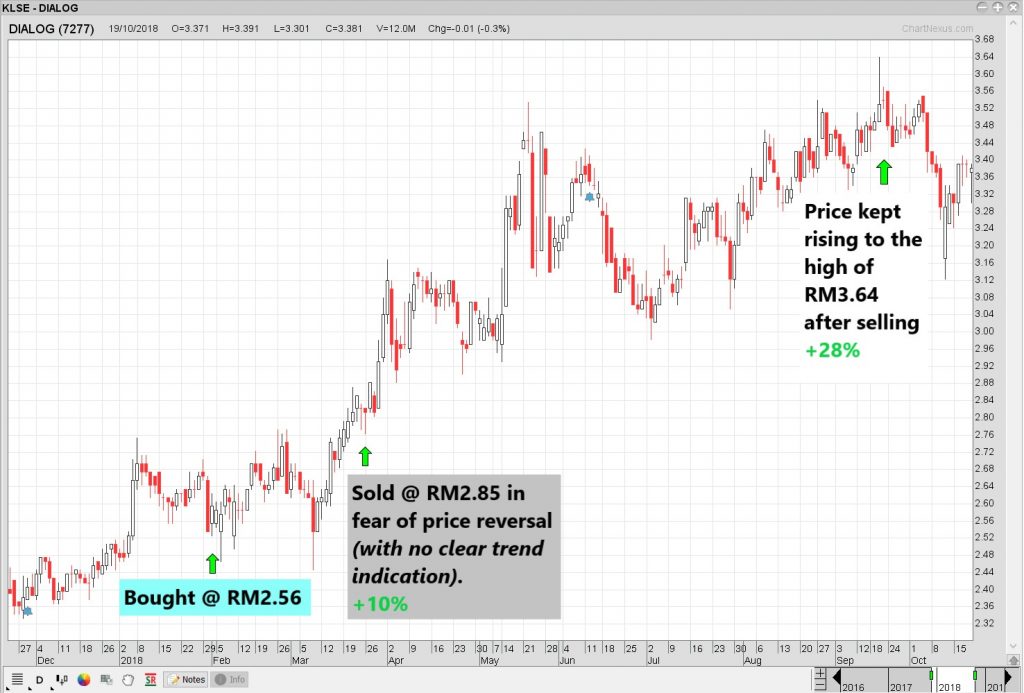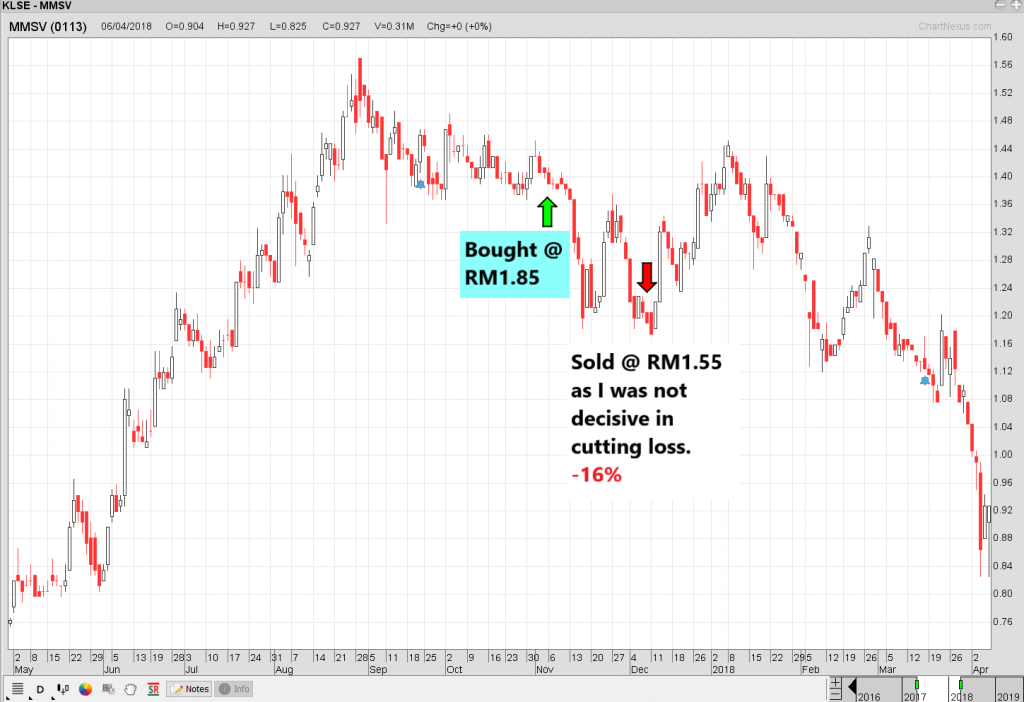Last Updated on May 2, 2022 by Chin Yi Xuan
I first got exposed to the stock market investing back in 2015 through like-minded university friends and investment books. However, without proper guidance and experience with the market, I made tons of mistakes in my early investment journey.
Looking back, while it did not feel good at all to lose money during that time, I am glad that I’ve made those mistakes because it was those experiences that shaped me into a more diligent and careful investor today.
Here are 5 mistakes that I’ve committed, some of which are extremely common among experienced and new investors alike:
p
Table of Contents
(1) Making investment decisions based on ‘Hot Tips’ and ‘Analyst Recommendations’
One of the regrettable mistakes that I’ve made in my early investing journey was to rely on ‘Hot Tips’ and ‘Analyst Recommendations’ that were shared with me.
I remembered putting a few hundred bucks into a local stock and ended getting out at a lost just because of a ‘Hot Tips’ from my friend which went like this:
“The boss of the company is very confident that they will do great for the next quarter onwards.”
Dumb me, dumb me.
Depending solely on ‘Analyst Recommendations’ is also extremely dangerous. While you may make money on some ideas, you may also lose a substantial amount in it. The bottom line is, you would never really know the reason of you winning or losing as you’ve not done the necessary due diligence yourself – thus lack the understanding towards the particular company or industry.
p
Key lesson: Always take ‘Hot Tips’ and ‘Analysts Recommendations’ in with a pinch of salt. Even if those insights are true, they would probably have gotten through multiple parties before it reaches you – the final victim of the market.
p

(2) Invest based on Gut Feeling & Impulse without Sufficient Research
Investing based on gut feeling and impulse is another mistake that I have done in my early investing journey. (Confession: I still make this mistake every now and then).
One of my vivid memory of buying on impulse was when my friend was participating in a case study competition and got Inari (a local semiconductor company that works with Apple) to research. As such, I’ve always heard about the company from my friend and hence developed a positive interest towards Inari.
With the very limited information that I got from my friend, I started to formulate my own theory:
“After all, if iPhone sales have (had) been doing so good, Inari should be a great buy, right?”
And you can have a smart guess on my investment outcome.
p
Key lesson: Refrain from investing based on feelings and limited knowledge. If you wouldn’t risk your health by buying a packet food without first checking its expiry date, why gamble your hard-earned savings or money purely on your feelings and limited knowledge?
p

(3) Too Afraid to Cut Losses and Taking Profit too Early
Now, I see this not just in myself, but also among many friends that invest as well.
Some of the biggest frustrations in my early investing journey was NOT so much on deciding WHAT company to buy (I already had ‘Hot Tips’ and ‘Analyst Recommendation’ for that), but rather WHEN to SELL my positions.
With no prior investing experience in the market, I tend to be extremely emotional regardless if price rises or drops.
Reason being, when the price drops, I would be too afraid to cut my losses in hope for a rebound (even worse, some inexperienced investors add-on to their positions while prices are dropping to ‘average’ down their losses).
On the other hand, when price rises, I also have the tendency to sell at little profit in fear of the market reverses later. As a result, some of my profits were cut short when prices move straight up just after I sold my positions.
p
Key lesson: Understand your intention when you enter a position. Are you in for the long-term, medium-term or short-term? Then, set your target profit (TP) and stop loss (SL) accordingly. Most importantly, stick religiously to your TP and SL.
p


(4) Ego to be Right
Well, well. Look at that newbie that tries to brag about his first few winning streaks and try to predict where would the market move in the future.
Chances are, we were in the position of that newbie before. We felt extremely ‘syiok’ or pumped whenever we were right and our positions hit our targeted profit.
Then, we moved on to brag about how easy it is for us to make money from the market. Even worse, we denied every difference in opinion by others.
Not long after that, market trend changes, bringing our beginners luck to an end as well. Guess what? It hurts so much to be wrong.
p
Key Lesson: No one is right 100% of the time. No method or strategy will be victorious 100% of the time. Be humble, if not the market will humble you.
p

(5) Never keep track of my investment
When I first started to invest, the idea of keeping track of my investments never came to my mind. As a result, I kept making the same mistakes over and over again.
Not only that, without a clear record of my investments, I couldn’t even track my profits or losses back then.
Now that I think about it, keeping an investing journal is, in my opinion, the most important habit that every new investor must pick up in order to make it in this journey.
p
Key Lesson: Pick a notebook or journal (or excel), keep track of all your stock investments – the entry and exit price, mistakes and lessons. You may not see the benefits now, but you will soon be glad that you did it in the first place.
—
p.s. Get the Template of My Stock Investment Journal for FREE! More details at the end of this article.
p

No Money Lah’s Verdict
So there’s it! 5 of the biggest mistakes that I’ve made in my investing journey and the key lessons that I’ve learned from them.
All in all, investing for me is more of an art than science. In order to be a successful investor, we have to understand not just the numbers and strategies behind it, but also to master the psychology and discipline as well. It is the discipline and emotional control that separates profitable investors from the herd.
What are your some of your biggest mistakes (and the lessons learned) in investing? Share with me in the comment section below! I cannot wait to learn from you 🙂
#1 BONUS: Get the Template of My Stock Investment Journal for FREE!
Journaling is the most important habit that an investor must build. If you are keen to build this discipline, I want to support you!
Just click HERE to download my personal investing journal template, and I am sure that you will thank yourself for building this journaling habit!
#2 SPECIAL: Learn how to generate passive income in the stock market!
Click HERE for more details.
Related Posts
January 25, 2019
How to Invest Using a Robo Advisor in Malaysia
October 30, 2018
3 Practical Ways to Protect Ourselves during a Market Downturn!
Subscribe to No Money Lah's Newsletter!
Get FREE updates to tips & ideas to live a better and more fulfilling financial life :)
Thank you!
You have successfully joined our subscriber list.
Chin Yi Xuan
Hi there! I am Yi Xuan. I am a writer, personal finance & REIT enthusiast, and a developing trader with the goal to become a full-time funded trader. Every week, I write about my personal learnings & discovery about life, money, and the market.




Hi Chin,
Thank you very much for your sharing. Very important to know before to start or on the way to invest
Thanks Eric! Glad that you find it useful! 🙂
Yi Xuan
Hi Yi Xuan,
How do you determine the exit price for any of your stocks that you’re currently holding?
Thanks.
Hi Sook Yee,
It is highly dependant on the purpose of why I buy them in the first place.
If I am in for the long-term, then my exit would be when my hypothesis or my purpose of buying into the business is invalidated.
If I am in for short-term (trading), then I’ll base my stops on price action, context and order flow on the chart.
Hope this clears things up for you!
Yi Xuan
Tips:
Exits and stops are very dynamic regardless if you are trading or investing.
Both market and business are everchanging and you’ll have to be very logical in every decision that you make.
Don’t try to look for a fixed, one style fits all exit method and do your best to be critical with every decision you make as again, the market and business environment is very, very dynamic.
Yi Xuan